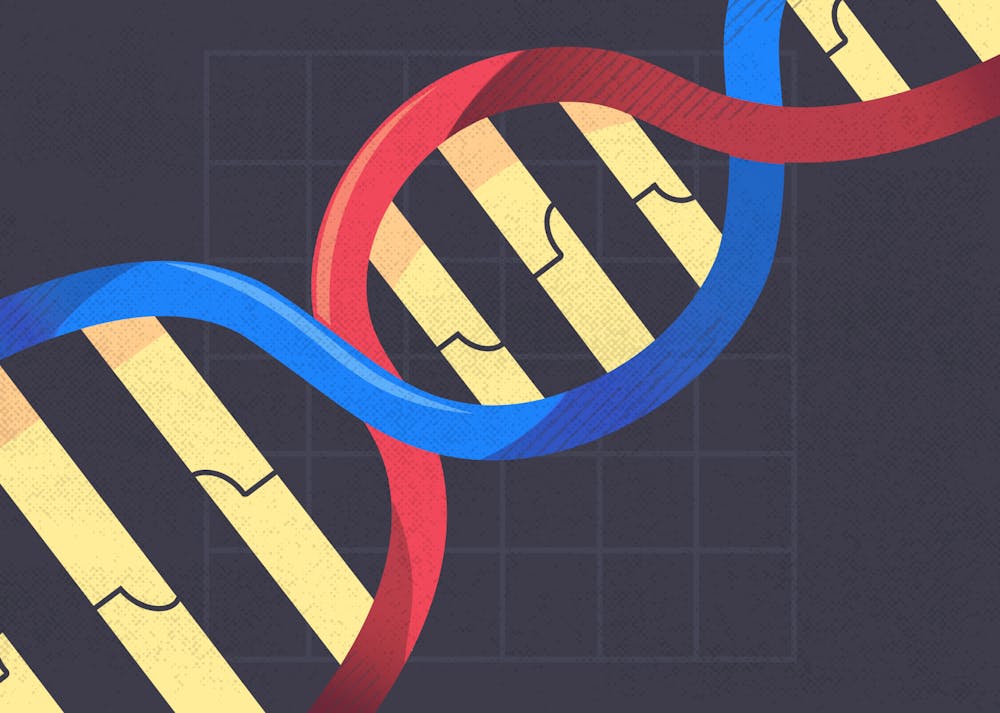The study of behavioral genetics is a complex subject that has often excluded racial ethnic minority groups. In spite of this, psychology students at ASU, like Belal Jamil, have been working to fill these gaps in research.
Jamil is a psychology graduate student and a member of assistant professor Jinni Su's Genes, Environment and Youth Development Lab. The goal of the lab is to explain the ways genetic and environmental factors contribute to the development of substance use disorders and other mental health issues, like anxiety and depression, later in life.
“Racial ethnic minority populations are heavily impacted but underserved, and so we need to better study them and understand them to inform intervention-prevention efforts,” Su said.
“One of the papers I wrote was with the Pathways to College Health Study, and that is essentially looking at a longitudinal study following first years (students) up until they graduate. The first years (started) in the fall of 2020, so the peak of COVID,” Jamil said.
This study analyzed the differences between Hispanic and Latinx populations and white populations when it came to COVID-19 experiences and related depression and anxiety.
“We found that Hispanic and Latinx college students experienced more COVID stress on average than our white participants did. We also found differences in the effects of social support in buffering that risk of COVID stress,” Jamil said.
In the study, they found that in white communities, romantic relationships were significant social supports, while friends played a larger role in Hispanic or Latinx communities.
Angel Trevino, a psychology graduate student, is one of Jamil's partners in Su's lab. The two worked on the Pathways to College Health Study.
Trevino said understanding the way genetics can be used to predict possible mental health issues could lead to early intervention in childhood.
“What we are finding now is that the way families structure themselves and the way youth structure themselves around their peers varies across racial ethnic groups. So it is very important to get to the nuances of how those things differ across groups,” Trevino said.
Jamil also recently wrote his abstract for the Behavior Genetics Association. He argued that both genetic and environmental factors have an impact on mental health outcomes, despite their variance across different racial and ethnic groups.
"Because when you are looking at behavioral genetics, a lot of times racial and ethnic minority populations are just excluded from those analyses,” Jamil said.
He points out a bidirectional effect that kids and parents have on each other that may evolve into negative parenting behaviors, family conflict, depression or anxiety. Parenting, then, has an effect on whether a genetic risk is pronounced.
The goal is to predict genetically-related issues, such as depression and anxiety, so that support can be given to those more vulnerable early in adolescence.
“So those (kids) might be the ones that you tell the teachers in school that they might need a little more support, or if there is an intervention program in middle school with limited resources, these are the ones that might benefit the most from this given their genetic risk." Jamil said.
Although this research is contributing to the expansion of behavioral genetic studies across various racial ethnic backgrounds, it is this work Jamil believes too few researchers are willing to explore.
“There needs to be a lot more initiative to do this type of research in non-white populations, just because that has been overlooked for a majority of time that behavioral genetics research has been done,” Jamil said.
“A lot of people are also just scared to approach it because they don’t know how to appropriately talk about it and make sure the research they are doing will be beneficial and productive instead of fueling stigma,” Jamil said.
Understanding the impact of their work, Jamil and his fellow researchers are aware of the potential of propelling misconceptions about behavioral genetics.
“He takes great initiative in generating ideas and willingness to learn new things," Su said. "I am just very impressed with his intellect and his passion about research."
Edited by River Graziano, Jasmine Kabiri, Greta Forslund and Anusha Natarajan.
Reach the reporter at brenna.gauchat@gmail.com and follow @brenngauchat on Twitter.
Like The State Press on Facebook and follow @statepress on Twitter.
Continue supporting student journalism and
donate to The State Press today.




